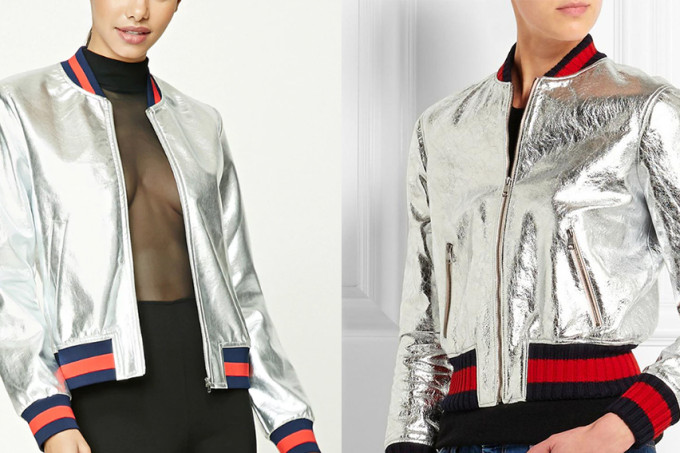
image: Gucci
Gucci stands to take home an early victory in part of its ongoing trademark battle with Forever 21. After the Italian design house asked a federal court in California to dismiss the case that Forever 21 filed against it in June – alleging that the fast fashion giant is “brazenly” masquerading as a “victim of unfair competition in search of legal redress in the courts,” and that it is “bringing suit to cancel some of the most famous marks in the fashion world” and “profiting handsomely by flaunting the law” – the court opted to take its side … in part … for now.
On Monday, Judge Fernando M. Olguin of the U.S. District Court for the Central District of California held that Forever 21 has not sufficiently made its case as to why an array of Gucci’s trademark registrations for its three-stripe designs should be invalidated. According to Judge Olguin, “The court is skeptical that [Forever 21] has sufficiently alleged facts to support its claims for cancellation based on lack of secondary meaning, aesthetic functionality and genericism.”

Forever 21’s jacket (left) & a Gucci jacket (right)
In short: According to the court, Forever 21 failed to adequately show that:
1) Consumers do not associate Gucci’s blue-red-blue and green-red-green striped trademarks with the Italian design house (that is what secondary meaning is);
2) Gucci’s blue-red-blue and green-red-green striped trademarks are essentially incapable of serving as trademarks because they are decorative features and by giving Gucci a monopoly over them that would stifle legitimate competition (aka would prevent others from using these decorative stripe designs) – that is what he means by “aesthetic functionality;” and
3) Gucci’s stripe designs are simply too common or generic to serve as trademarks (Note: The purpose of a trademark is to indicate the source of a brand’s goods).
Because Forever 21 asserted in its complaint that these 3 reasons are why Gucci’s trademarks should be cancelled (Note: the case centers on the striped trademarks, themselves, and not on any of the brands’ garments or accessories), but failed to sufficiently back up its assertions – aka the court found “multiple deficiencies with these claims” – the court has permitted the fast fashion giant to amend its complaint and try again.
It is not entirely uncommon for a judge – upon discovering problems with a complaint – to recommend that a complaint be amended and re-filed within a certain amount of time. For Forever 21, that date is November 17. If it fails to amend its complaint with regards to the trademark cancellation claims and/or does not do so sufficiently, that “may result in this action being dismissed,” according to Judge Olguin.
A spokesman for Gucci said the brand is “pleased” with the latest development in the case, calling it “an important step in Gucci’s continuing commitment to the protection of its renowned and iconic intellectual property.”
With that in mind, stay tuned. Even if Forever 21’s trademark registration cancellation proceedings are tossed out, Gucci has lodged counterclaims against Forever 21 for trademark infringement, trademark dilution and unfair competition. In other words, this case is far from over.
* The case is Forever 21, Inc. v. Gucci America, Inc., et al., 2:17-cv-04706 (C.D.Cal).







